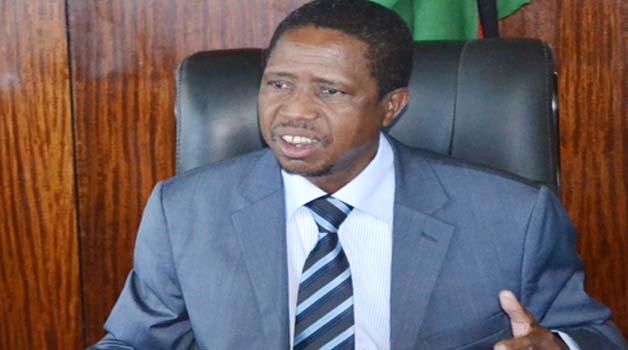THE United States of America has described President Edgar Lungu’s decision to assent to amendments to the Constitution as admirable and should be emulated in other countries facing constitutional challenges.
United States deputy assistant secretary of State at the Bureau of African Affairs Todd Haskell said President Lungu’s signing into law the amendments to the Constitution was admirable and other countries should learn from Zambia.
Mr Haskell said this when Zambia’s Ambassador to the US Palan Mulonda met him to brief the US government on the general state of affairs in Zambia.
This is according to a statement issued by the Zambian Embassy to the US first secretary for Press and public relations Patricia Littiya.
Mr Haskell said the President’s actions in ensuring the constitutional amendments were actualised was highly admirable, observing that it would be desirable for other countries to take a leaf from Zambia, especially regarding the enhancement of transparency.
Mr Haskell said Zambia was one of the most sought-after destinations for many US foreign service officers due to the fact that it was a peaceful and stable country.
He said the US had been following the political developments in Zambia with keen interest, particularly those related to the constitutional reform process.
Mr Haskell said regarding military cooperation between the US and Zambia, a number of exercises had been undertaken, including the Africa Endeavour in 2013.
He also asked how Zambia viewed military cooperation with other countries such as China and Russia.
In the health sector, Mr Haskell observed that the Presidential Emergency Fund for AIDS Relief (PEPFAR) had been one of the success stories in Zambia with around 700,000 people now on life-saving drugs compared to 3,500 in 2004.
In his brief, Mr Mulonda informed Mr Haskell that Zambia had been undergoing a protracted constitutional review process and that the recent amendment signed by President Lungu had addressed several of the concerns raised by various stakeholders.
Some of the provisions in the amendment were the introduction of the running mate, who would have a concurrent tenure with the President and the inclusion of the 50 per cent-plus-one threshold for presidential elections, which was a change from the first-past-post system employed earlier.
Mr Mulonda said Zambia was facing many challenges citing water supply, energy and food security, which are all key for the stability of any country.
He was grateful to the US government for interventions through the Feed the Future Initiative towards improving food security aimed at enhancing energy security.
The Zambian envoy said that while there was a period when Zambia was able to assist its neighbours that were already in distress of grain, the recent low rain levels had negatively impacted the country.
“In this regard, areas that were hard hit were receiving supplements, as well as airlifts in low-lying areas, and efforts towards crop diversification have also intensified with crops such as cassava being promoted as an alternative to maize,” Mr Mulonda said.
He thanked the US government for their initiative to fight AIDS in Zambia and said the country remained open-minded to working with like-minded partners in military and other sectors.







